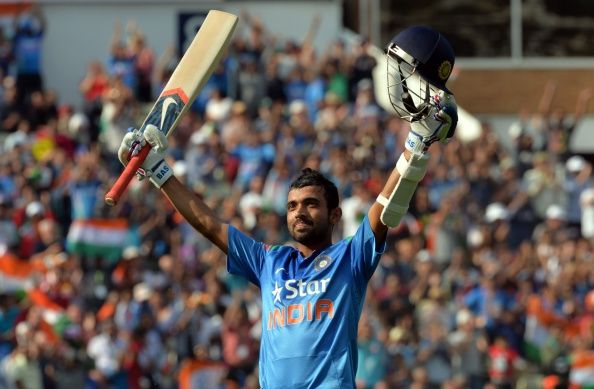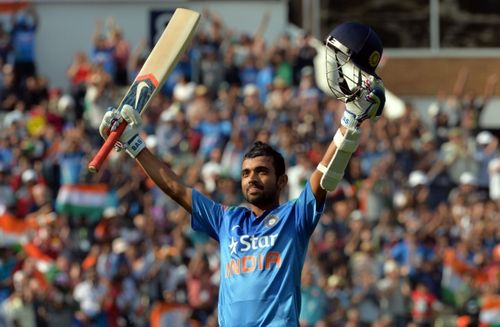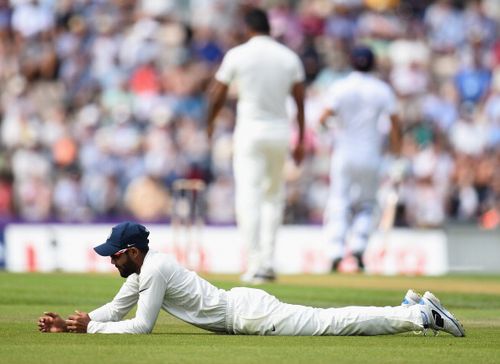
England v India 2014: Why the visitors need a whitewash in ODI series
India’s win in the 4th One Day International (ODI) at Edgbaston was a ‘complete’ victory, in the words of Indian captain MS Dhoni. Coming from a person who believes in keeping his tone as dull as possible when addressing media, this is, indeed, a sign of happiness, and deservedly so; however, for the happiness to be lasting, India needs to subdue this sense of achievement, because nothing less than a 4-0 whitewash can erase some of the painful memories of the Test series. England are exactly where India were a few weeks back, and, if India’s surrender in the final two Tests is taken as an example, there seems no way England can, on their own, beat India in the final ODI. There does, however, exist the possibility of India, driven by complacency or misplaced adventurism, slipping in intensity levels, given that they have already secured a comprehensive series victory.

Case 1: Ajinkya Rahane
‘Sense of achievement’ can be a dangerous proposition. The best example of this is exhibited when a batsman, after reaching a milestone, loses concentration and gets out. The immense joy of doing something that etches one’s name in the annals of cricketing history is indeed difficult to resist, but the ones who do are the ones remembered long after their career is over. We do not have to look far back for a live example; in the aforementioned 4th ODI, Ajinkya Rahane, after a scintillating display of elegant strokeplay, met with a ‘soft’ dismissal shortly after his maiden ODI century. The dismissal did not have any impact on the match, with Shikhar Dhawan finishing things in a flourish and coming tantalizingly close to his own century. However, in circumstances where a 10-wicket victory was easily possible, a 9-wicket victory falls short of perfection.
Let us not forget that twice during the Test series, we were subject to the absolute humiliation of an innings defeat; defeating England by 10 wickets would have been the closest surrogate of that ignominy. Dhoni needs to ensure that a similar sense of achievement does not translate into a reduction in intensity levels in the final ODI. Our bench is strong enough for trying out a newcomer, but the final XI should not bear resemblance to an India A side, decided on the pretext of giving people an opportunity, ‘now that the series is won.’ I would be extremely disappointed if the strongest XI is not fielded in the final ODI. Also, I would want the Indian players to look hungry and desperate for a win, as opposed to exuding body language indicating content and achievement.
Case 2: Ravindra Jadeja
Just a short while back, once again deservedly so, we were eulogizing the victory at Lord’s, after 28 years. With 3 Tests still to go, the kind of frenzy displayed by the media and public about the fantastic victory would have lulled the Indian team into a comfort zone from which they just didn’t recover. For me, the turning point of the Test series was Ravindra’s Jadeja’s drop of Alastair Cook in debutant Pankaj Singh’s second over.

India’s opening bowlers were regularly beating the bat, and England just about managed 25 runs in the first 10 overs. Cook, who was in terrible form all through 2014, had hobbled along to 15, when he edged a regulation catch to Jadeja at third slip, which he grassed: the England captain went on to score 95 runs; Pankaj Singh went on to break the world record for maximum runs given by a bowler before getting a first Test wicket; and India went on to display one of the most pathetic surrenders in whites, in recent times.
While it will be difficult to attribute the drop only to a false sense of achievement, for a fielder of Jadeja’s caliber, even with the slips being a specialized position, that should have been a sitter. India went on to drop many more catches in the series, but, by then, the team had already transformed into lambs being led to slaughter and were just going through the motions.
Recreate the ruthlessness of the great Australian team
I am elated that India has managed to win a bilateral series in England, after 24 years, and emphatically so, irrespective of the outcome of the final ODI; I am not celebrating, yet, though. While Cook’s illogical statements of a bounce-back similar to Tests have no relevance, a repeat of the 2008-09 ODI series in New Zealand, where India had breezed to a 3-0 lead, before collapsing to 149 all out for a crushing defeat in the final ODI, is definitely not desirable. The current ODI team possesses the batting talent of the nearly-invincible Australian team of the early 2000s.
On pitches that provide a bit of assistance to spinners, our bowling talent, rejuvenated by the strategy of playing 5 specialists and bolstered by several part-timers, can attempt to match up to their bowlers, too. What remains a gap is the absolute ruthlessness displayed by that great Australian team, where they annihilated oppositions without any let up in intensity. If India can recreate that ruthlessness, we stand in good stead ahead of our quest to defend the World Cup crown in a few months time. I continue to do what I did after the Test victory at Lord’s: watch as many reruns as possible of the victorious moments, which the broadcasters are generous enough to regularly show, and silently pray that the momentum is maintained. My prayers weren’t answered in the Test series; whether they will be in the final ODI will depend to a large extent on the hunger that India brings on to the pitch tomorrow.